Steven R. Southard's Blog, page 79
July 15, 2012
Tom Swift and His Psycho-Subliminal Writer Inspiratron
When I was a young lad growing up in Cedar Rapids, Iowa in the mid-1960s, my Aunt Betty gave me a precious gift, a copy of Tom Swift and His Flying Lab by Victor Appleton II, ©1954. It was the first book in “the New Tom Swift Jr. Adventures” series which eventually included 33 novels.
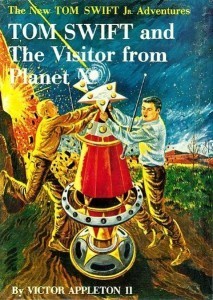 The series involves the adventures and inventions of an 18 year old engineer and scientist. Each book features a new invention and typical titles are Tom Swift and His Ultrasonic Cycloplane, or … and His Electron...
The series involves the adventures and inventions of an 18 year old engineer and scientist. Each book features a new invention and typical titles are Tom Swift and His Ultrasonic Cycloplane, or … and His Electron...
July 8, 2012
A Mystery to Me
Do you love reading mysteries? Ever think of writing one?
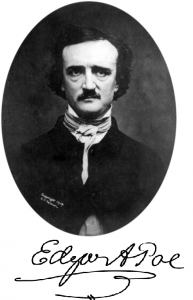
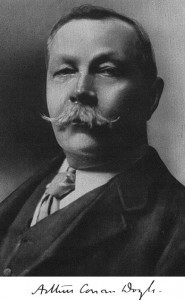 The genre was invented by Edgar Allan Poe and popularized by Arthur Conan Doyle in his Sherlock Holmes stories. It remains a popular genre with a devoted readership.
The genre was invented by Edgar Allan Poe and popularized by Arthur Conan Doyle in his Sherlock Holmes stories. It remains a popular genre with a devoted readership.
The mystery genre is hard to define. All fiction involves an element of mystery, since there’s always a conflict and the reader doesn’t know how the protagonist will resolve that conflict. Here we’ll speak of stories where the focus is on the puzzling aspects of the conflict...
July 2, 2012
Book Review – The Clan of the Cave Bear
Go ahead and chastise me now. Yes, I’m one of the few who hadn’t read Jean M. Auel’s Clan of the Cave Bear © 1980. Until now. Along with the rest of the world, you read the book, and perhaps the series, long ago. You already formed your opinion. What follows is mine.
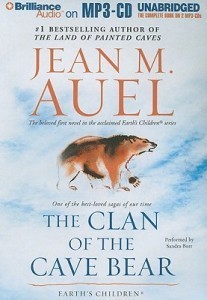 I listened to the Brilliance Audio CD version, narrated by Sandra Burr.
I listened to the Brilliance Audio CD version, narrated by Sandra Burr.
In brief, an earthquake collapses a cave containing a clan of Cro-Magnon people and the only survivor is a five-year-old girl named Ayla. She is taken in by a...
July 1, 2012
Fleshing Out Your Story
Perhaps you’re a beginning writer with a great idea for a story. Or maybe you’re an experienced author and someone has come to you with a story idea and suggested you just whip up the story inspired by that idea. Either way, there’s something writers know that non-writers don’t — the idea is the easy part.
 Would you approach a
Would you approach a  sculptor with a sketch, then gesture to a nearby block of marble and suggest the sculptor merely chip away at the block until it looks like your sketch? Would you hum a...
sculptor with a sketch, then gesture to a nearby block of marble and suggest the sculptor merely chip away at the block until it looks like your sketch? Would you hum a...
June 24, 2012
Writing for Young Adults
 Want to write stories for Young Adults? Hard to blame you. It’s a large market, and some authors have become successful in aiming for it. If you, like J. K. Rowling, happen to write a YA story that also appeals to adults, then your story’s market is that much bigger.
Want to write stories for Young Adults? Hard to blame you. It’s a large market, and some authors have become successful in aiming for it. If you, like J. K. Rowling, happen to write a YA story that also appeals to adults, then your story’s market is that much bigger.
Perhaps your purpose in writing YA stories is more complex than a direct desire for money or fame. One web commenterhas suggested writer Robert Heinlein wrote YA (then called ‘juvenile’) novels to shape a young audience, to prepar...
June 17, 2012
Can’t You Stick With One Genre, Steve?
Today I’ll explore the reasons why some authors write in only one genre, and why others don’t. If you’re a beginning writer, most likely you picture yourself staying in your favorite genre. Don’t be too sure things will remain that way. When I started, I never imagined I’d write a horror story, or a romance.
Here’s the list of the genres in which I’ve had stories published, along with the stories that apply to each (and yes, some stories reside in more than one genre):
Science Fiction
“Bringing...
June 10, 2012
How Do Writers Exercise?
 Writers exercise like everyone else, I suppose–when it comes to their physical body. Today, though, I want to consider how writers exercise their writing skills. Early in life we learn the secret to getting better at any skill–long hours of practice and exercise. Sadly, writing is no exception to this.
Writers exercise like everyone else, I suppose–when it comes to their physical body. Today, though, I want to consider how writers exercise their writing skills. Early in life we learn the secret to getting better at any skill–long hours of practice and exercise. Sadly, writing is no exception to this.
1. The first step in a writing exercise program is to identify your weak area, or areas. You can get a feel for these from your critique group, from any comments received from editors as they r...
June 9, 2012
Book Review – The Hunchback of Notre Dame
Writers should be versed in the classics of literature to some extent, and I had never read The Hunchback of Notre Dame by Victor Hugo, published in 1831. So I read it. I just completed listening to all 19 CDs of the Recorded Books version narrated by the incomparable George Guidall.
 It would be easy to do a straight review and give this monumental novel a rating of 5 seahorses. Hunchback well deserves my highest rating for its universal themes and timeless characters.
It would be easy to do a straight review and give this monumental novel a rating of 5 seahorses. Hunchback well deserves my highest rating for its universal themes and timeless characters.
However, you can find tho...
June 3, 2012
All Depends on Your POV
Every story has a point of view, and because POV is a basic element of story-telling, it’s important for beginning writers to understand the term. There are some choices to make, and you’ll want to select the one that maximizes the reader’s enjoyment of your story.
 Think of POV as knowing who’s holding the camera that “sees” the story. There are three basic types. First person POV is told from a single character’s perspective as if the narrator is the character–“I walked into the room.” Second...
Think of POV as knowing who’s holding the camera that “sees” the story. There are three basic types. First person POV is told from a single character’s perspective as if the narrator is the character–“I walked into the room.” Second...
May 27, 2012
Speaking of Dialogue…
Yes, I know I’ve written about aspects of dialogue before, but it’s time I tackled the subject in general.
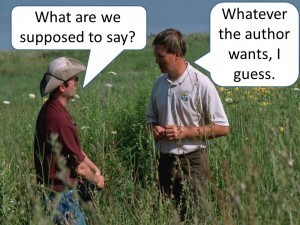 First, why do fictional works include dialogue at all?
First, why do fictional works include dialogue at all?
The most important reason is because people talk. A lot. If you’re writing a story about more than one person, chances are they’ll have something to say to each other.
Also, dialogue is a great way to show the reader things about your characters. More on that below.
Without any dialogue, your story would be uninterrupted narration. Dialo...



